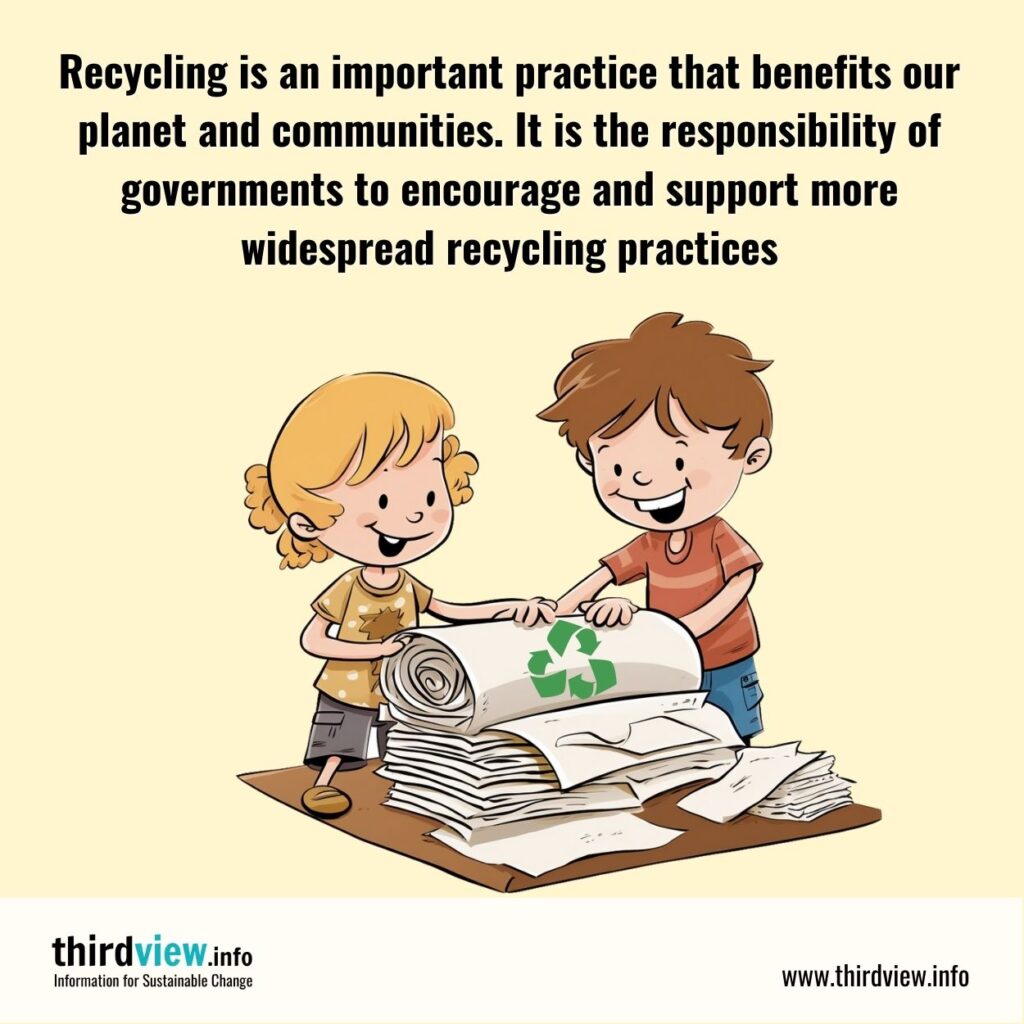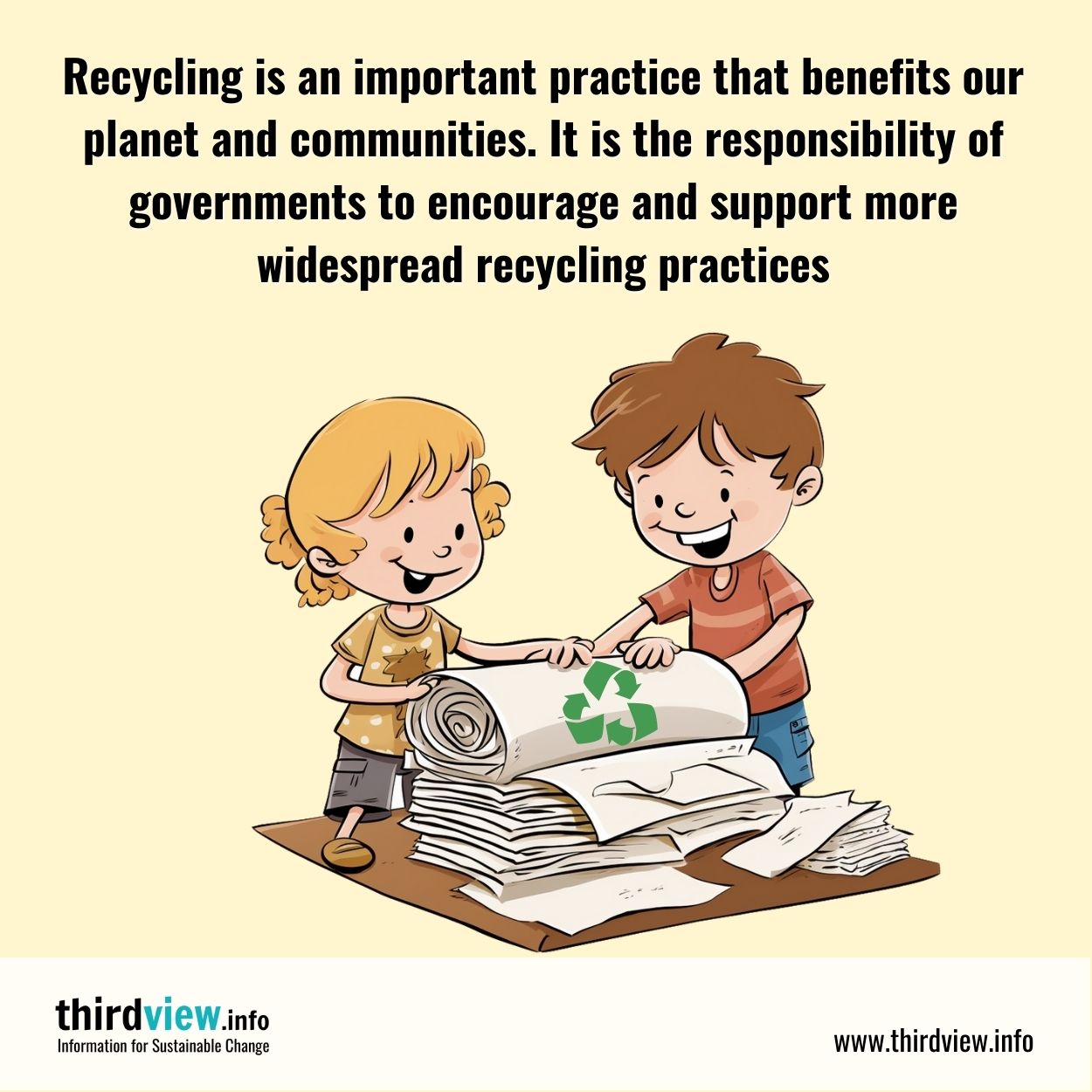As we continue to face the global climate crisis, governments have a responsibility to explore ways in which they can support more extensive practices of recycling. Recycling helps reduce the amount of waste that ends up in landfills and ultimately mitigates the environmental impacts of human activities. In this blog post, we’ll take a look at some of the ways that governments can encourage and support more extensive recycling practices.
Public Education Campaigns
One way that governments can help encourage more widespread recycling is through public education campaigns. These campaigns should focus on informing people about the importance of recycling and highlighting the benefits it has for both our planet and our communities. Government-funded educational materials such as brochures, posters, television commercials, radio spots, and online advertisements can all be effective tools for spreading awareness about recycling. Additionally, government agencies could partner with local schools or community organizations to host workshops or events focused on teaching people how to properly recycle items like plastics, paper products, metals, glass containers, etc.
Subsidized Recycling Programs
Another way that governments can support more extensive recycling practices is by providing financial incentives for businesses or individuals who participate in designated recycling programs. For example, subsidies could be offered to businesses that purchase recycled material instead of new material when manufacturing their products (this would help create demand for recyclable materials). Governments could also offer tax breaks to individuals who purchase products made from recycled materials or provide grants to residential building projects which make use of recycled materials (such as water bottles used as insulation). Subsidizing these types of initiatives would not only encourage more widespread use of recycled materials but also help create jobs in the process.
Infrastructure Investment
Finally, governments should consider investing in infrastructure that makes it easier for people to recycle items. For example, cities can install public bins where people can drop off their recyclables like plastic bottles or aluminium cans. This would make it much easier for citizens living in densely populated areas to recycle without having to go out of their way or take extra steps. Additionally, governments could invest in technology that makes sorting recyclables faster and easier (such as automated sorting machines). This would increase efficiency and reduce costs associated with manual labour needed to sort through recyclable materials at waste processing centres.
Governments play an important role when it comes to encouraging more extensive practices of recycling among their citizens. Public education campaigns are one way they can do this by informing people about why it’s important to recycle and how they can do so safely and effectively. They should also consider offering financial incentives for businesses or individuals who participate in designated recycling programs as well as investing in infrastructure that makes it easier for people to recycle items like plastics or aluminium cans without going out of their way. All these measures taken together will help create a sustainable future for generations yet unborn.


